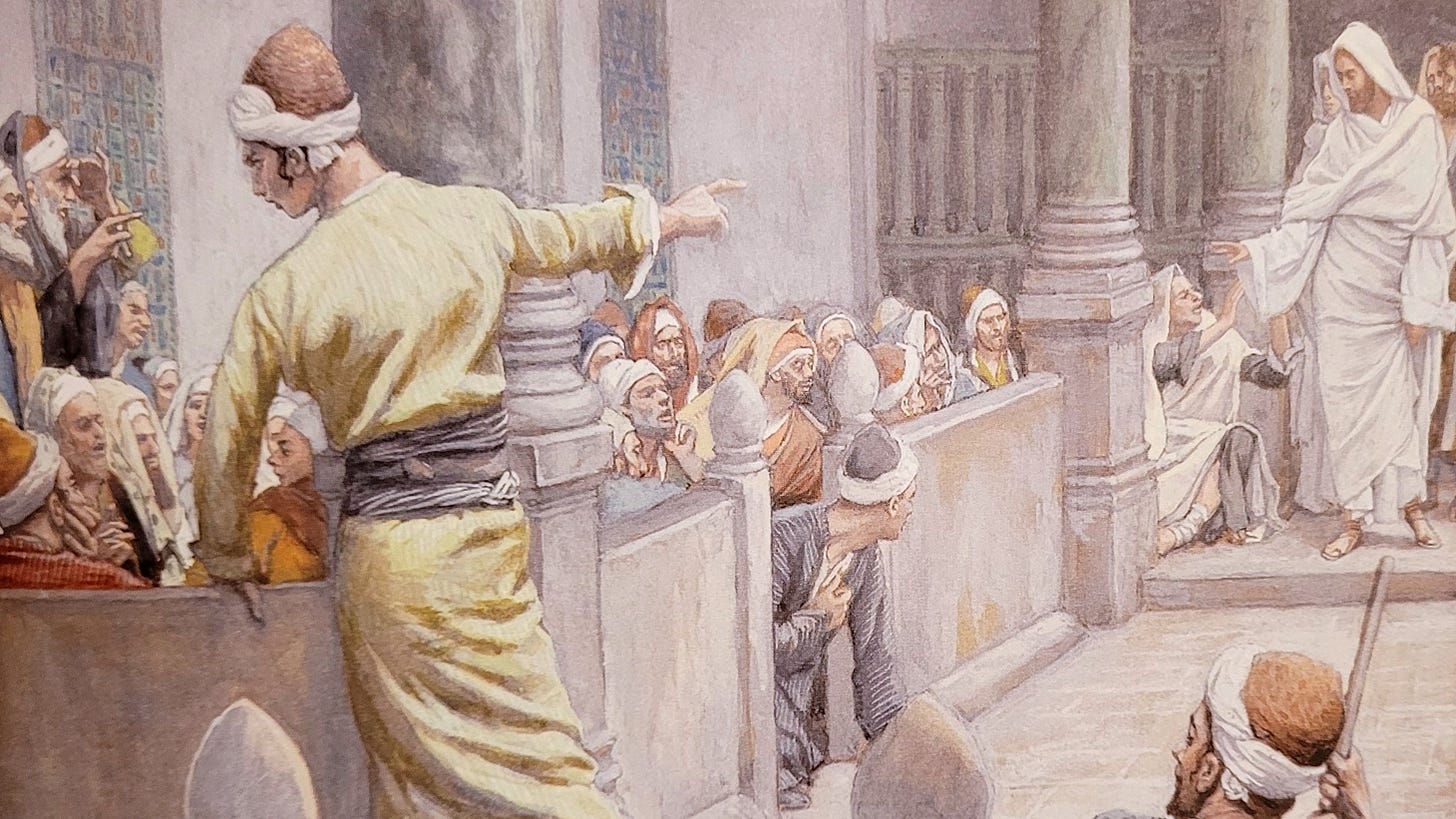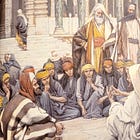What prevented the Pharisees from hearing Christ’s words properly?
When he told them that they would die in their sins, they heard something completely different.

When he told them that they would die in their sins, they heard something completely different.
Editor’s Notes
In the previous exchange, Christ revealed himself as “the Light of the World,'“ and rebuked the Pharisees for judging “according to the flesh.” He appealed to the witness of the Father—but they, lacking faith, failed to grasp even that he spoke of God.
Now the dispute intensifies further. Fr Coleridge tells us:
How Christ warns his enemies that they will die in their sin unless they believe in him
That his hearers’ blindness is caused by their worldly hearts and refusal to accept his Father.
Why even his clearest affirmations of divinity were lost on those determined not to understand.
All these debates are leading up to Christ’s clear declaration of divinity:
“Before Abraham was made, I am.”
This solemn affirmation of His divinity—understood as such by those around him—drives His enemies to fury. They take up stones to kill Him, but he hides himself from them.
For more context on this episode, its significance and its place in the Roman Liturgy, see here:
Disputes in the Temple
The Preaching of the Cross, Part I, Chapter XIII
St. John viii. 12-20.
Story of the Gospels, § 93
Burns and Oates, London, 1886
Headings and some line breaks added.
Sung on Passion Sunday
How did the Sanhedrin know Christ would affirm his divinity under oath?
What prevented the Jews from hearing Christ’s words properly?
How is Satan ‘a murderer’ and ‘the father of lies’?
What did Christ mean by, ‘Before Abraham was made, I AM’?
They are to die in their sin
St. John next passes to another of the short detached conversations which were so frequent at this time of our Lord’s teaching in the Temple.
‘Again therefore Jesus said to them, I go and you shall seek Me, and you shall die in your sin. Whither I go you cannot come.’
This is an advance in severity on what He had before said about their not knowing Him. He had used words to the same import the day before, as it seems, when speaking to the officers who had been sent to apprehend Him. But He had not said to them anything about dying in their sin, for they at least were simply instruments of others, and need not be supposed to have shared the obstinate resolution not to believe, which had taken possession of the minds of the rulers at Jerusalem. Their only idea was to get rid of Him, and to keep things as they then were, they themselves having a large share of power and credit and worldly position under the government of the Romans.
Our Lord represents to them their ever-increasing danger. The time was short, and they were for making it shorter, during which He would be with them. When that was over, their opportunity would be gone, their time of probation as to the reception of His teaching would be past, and seek Him if they would, they could not find Him, and they would die in their sin.
This would be true in two ways.
The necessity of faith
Faith in Him was the condition of salvation, and of the remission of sins to all, and having missed their time, they would no longer be able to obtain remission. Again, their special sin, which they were nursing and refusing to abandon, intensifying it at every moment during this time of our Lord’s presence with them at this great feast, was, as has been said, resolute unbelief, and in this they would grow more and more obdurate, and in this they would finally die.
It was characteristic of these Jews that they did not fasten on the words which were of most importance to themselves, the words about the sin in which they would die, but rather on those about our Lord going away and their seeking Him and not finding Him. The Jews therefore said, Will He kill Himself? because He said whither I go you cannot come. In His words to the officers, mentioned in the former chapter, He had spoken of going away and their not being able to come whither He was going, and the officers had then seemed to take the words of some possible flight of our Lord, betaking Himself to the dispersion among the Gentiles to whom He might intend to preach.
But these rulers had in their own minds the death to which they had long ago destined our Lord, and so it came naturally to them to speak of death rather than of any other method of His removal from among them.
The Father Coleridge Reader is a labour of love. But curating, cleaning up and publishing these texts takes a lot of time. Every now and then, we have to make one of the posts for members only, in order to keep it going.
Please consider joining us with a subscription!




